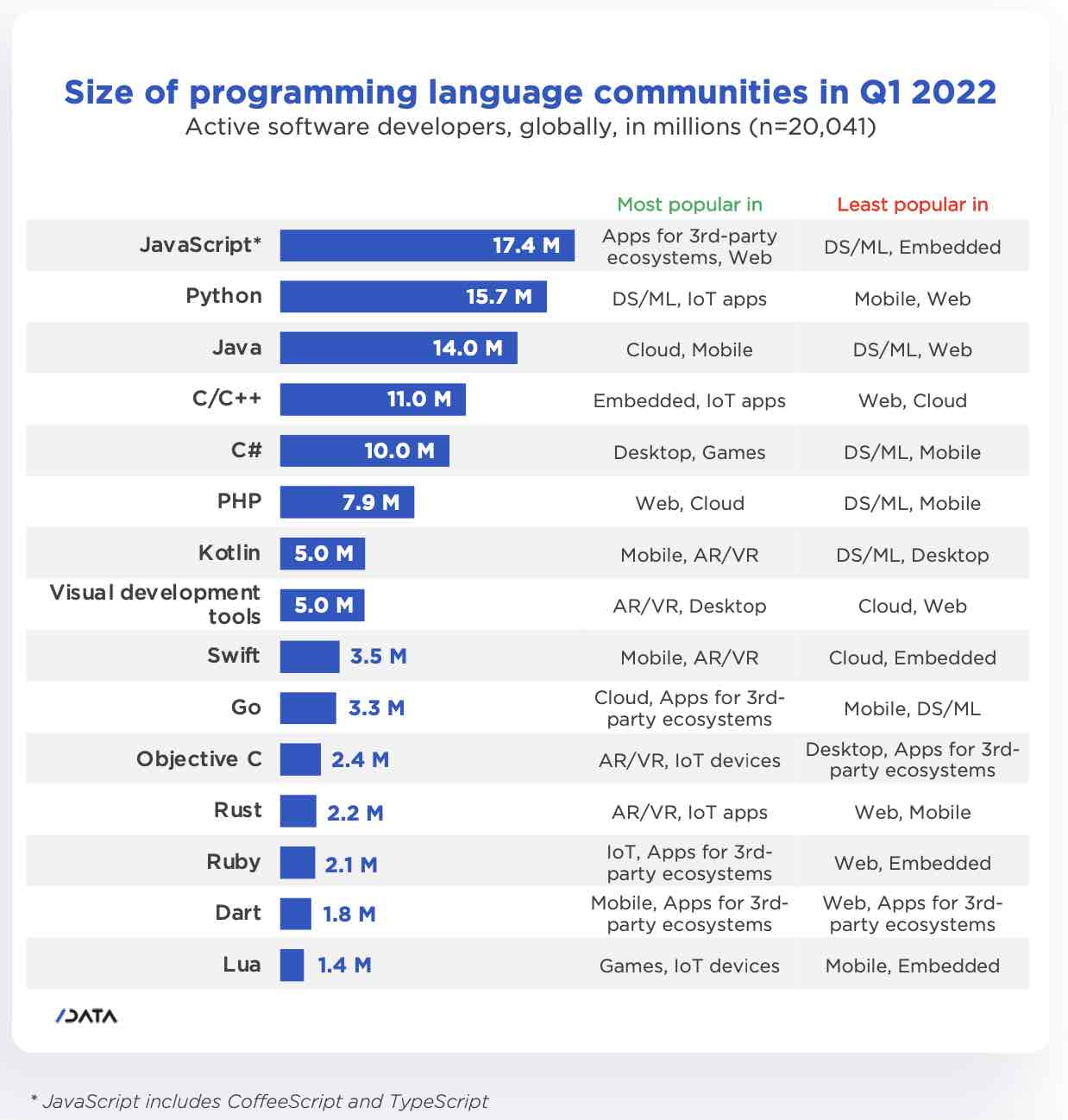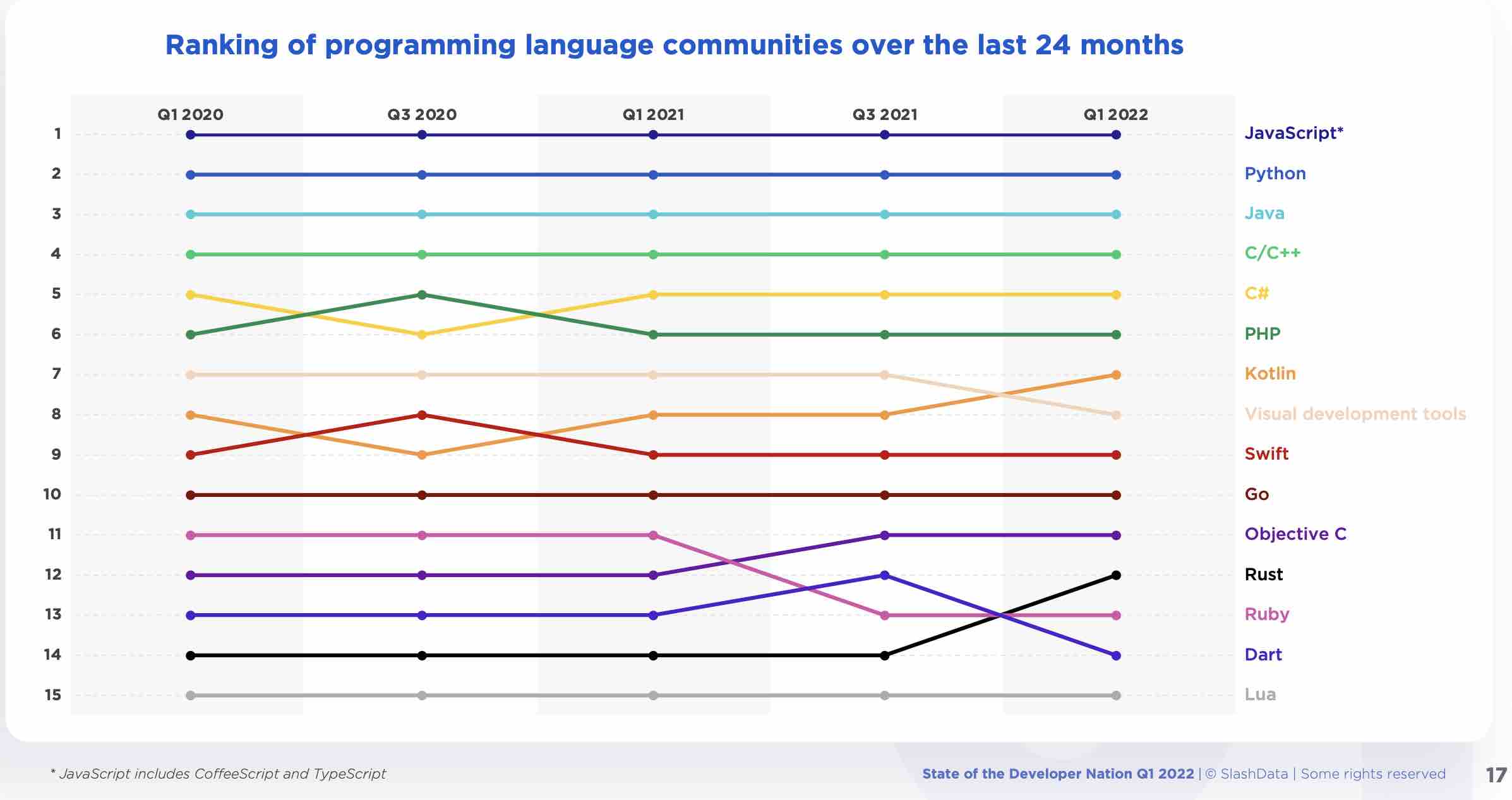Which Coding Language Is Best For Beginner Progammers?

What’s the Best Programming Language for Beginners?
Besides the question of which IDE to use, most beginner programmers always ask: “What’s the best programming language to use if I want to get started with coding?” The easy answer would be to just tell them to use Python and walk away. However, this is a little too simplistic of an answer and in many cases it might not be the best answer to give someone.
But Python Is ‘The Best’ For Beginners…
While it is true that Python is much easier to learn than other programming languages, are we really doing a new programmer justice sending them off to learn a programming language that has libraries that do everything for them? How much learning will be happening if they’re constantly using all of the Python shortcuts? Certainly coding in some language is better than none but will it really be the best for them in the long run if they really decide to get heavy into coding?
So What Progamming Language Is Best Then?
Instead, when we’re asked the question of which programming language is best to start out in coding with, we should ask the aspiring programmer a question in reply: Why do you want to get into coding in the first place? Only then can we set them off on the best path forward.
For example, someone says they’d like to get into programming to make web applications. Well, should we then tell them to go off and learn Python? No, instead we should direct them towards Javascript. Or, if they say they want to make iOS applications, we should direct them towards Swift.
Now, if Python fits what a beginner programmer wants to do, then it might make more sense to tell them to learn Python. For instance, if an aspiring programmer says they’re interested in learning programming for machine learning, artificial intelligence or mathematical modeling, then it’d be much more appropriate to push them towards Python.
A Journey Into Beginner Coding
In my situation, when I first started out in coding I wasn’t exactly sure why I wanted to learn programming except for the sake of learning how to code. I was glad the first language I learned was Java. Not only was there a strong focus on syntax in Java but it quickly got me into learning about object-oriented programming (OOP). This is not to say that you can’t learn OOP in Python, but in Java OOP is much more inherent to in its design.
Shortly afterwards, when I moved into C++, although it was slightly different than Java, it felt similar in many ways and the OOP concepts weren’t foreign to me anymore. This language was also great for me as a beginner because it gets much closer to the machine level where you can interact with memory and learn the concepts of pointers through the code. Without a knowledge of pointers, it’d be much more confusing when using Python which is based around the concept of pointers.
More could certainly be said about the pros and cons of learning Python first or last but foundationally I was set up much better by learning Java and C++ before Python. In fact, I might not know all the benefits of using Python had I not started using languages other than Python. There are still a lot of things about Python that even bother me and some stuff that I would much rather code in C++ than Python, but that’s a story for another day.
What Are The Most Popular Programming Languages?
A topic like this would not be compelete without a discussion of the most popular programming languages. As a beginner programmer, no matter which language you start with, you’ll eventually want to land a job. So, if you start with some obscure language like Haskell, you’re eventually going to want to learn a language that’s more likely to get you a position.
According to the latest SlashData survey the most popular programming languages are as follows:

This list is important for two reasons. First, it’s easy to see which programming languages are in demand. The most popular ones are generally the most in demand. Second, it shows what these languages are being used for, generally speaking. Now while you can use Python for web development, it’s easy to see it’s not generally used for web development and that most web developers tend to gravitate towards Javascript.
So, if you’re planning on learning to code and you know what you want to code, study this list. Pick a language that others are using for your particular use case. There’s probably a good reason why they are using that language and not another. Also, you’re more likely to find support online and in forums when you get stuck with some problem you can’t work out (and you will run into a problem at some point).
Trends In The Use Of Programming Languages
Additionally, it also helps to look at the trends in the usage of various programming languages. You don’t want to be stuck learning a programming language that is dying a slow death, only to find out later that no one is using it anymore. In the same SlashData report, the trends are outlined as follows:

Although not much has changed according to this graph, it is evident that Rust and Kotlin have grown in use. So, if you plan on entering app development or AR, you might want to look into these languages a bit.
What’s not seen on the graph but outlined in the report is that “Go has grown more than twice as fast in the past year in absolute terms.” Go is quickly becoming a very popular language. I’ve experimented with Go a bit and I can tell you from firsthand experience that it’s a great language. If you’re really stumped at which language to learn first and you don’t have any particular direction you want to go in (no pun intended), Go is not a bad choice. That said, you should know that go is a backend language and not a frontend language.
Where To Learn How To Code
There are no shortage of places to go to learn how to code. In fact, the problem is finding the right place. A good place to start is the official website of the language you want to learn. If you choose Python, for instance, you can start with the official Python tutorial. If you’re more of a visual learner you can go to Python Land where there is an excellent visual and interactive way to get started with Python. A classic website for nearly all languages, including Python, is W3 Schools.
If you prefer more formal instruction you can check our the courses over at edX on beginner programming and computer science. Sticking with the Python example above, they also have some excellent courses on Python, many of which are free. If you want to interact with your instructors, and still want a free course, I highly recommend CodePath where they have an Intro to Software Engineering course.
There are lots of options for if you decide to go the non-free route. This option can be good if you really need a lot of direction and aren’t good at learning on your own. Options include local community colleges, coding bootcamps, and private coding tutors. If you want a four-year degree, it’s recommended studying at a university (or if your local community college offers a bachelor’s degree). With a four-year degree you’ll have a much better chance of landing a coding job, as mentioned in my previous article of How to Become a Software Engineer.
If you’re eager to land a job and don’t mind being beholden to a company for several years, there are some companies who will pay you to learn coding. However, you will have to stay with that company for a designated period of time and you will get paid a lot less than you would getting employed on your own. That said, this tradeoff does work for some people and it’s a way to get real-world experience quickly.
All things considered, starting off with the free route and seeing if you at least even like coding is your best bet. Try some simple coding projects or a simple game and go from there. You’ll learn quickly whether or not you like coding just by trying a simple project.
Best Coding Books for Learning How to Code
Another great option that is sort of a bridge between self-directed learning and learning through a formalized system with an instructor is learning how to code through books. Books provide direction and structure to keep you focused, but there is still a lot of self-direction involved so you have to be someone who is disciplined.
Here are a few programming books in various languages to get you started:
- Python Crash Course, 2nd Edition: A Hands-On, Project-Based Introduction to Programming
- Learn C++ Quickly: A Complete Beginner’s Guide to Learning C++, Even If You’re New to Programming
- Learn JavaScript Quickly: A Complete Beginner’s Guide to Learning JavaScript, Even If You’re New to Programming
- Java: An Introduction to Problem Solving and Programming
- Problem Solving with C++
- Swift Programming: The Big Nerd Ranch Guide
Although not a definitive list, this list should help get you started with some of the most popular languages. You might learn a little bit more slowly if you choose to learn with books, but you’ll learn everything much more thoroughly as compared to other methods.
Are You Ever Done Learning Programming?
The simple fact of the matter is that you will never be done learning programming. There is always more to learn: more languages, more syntax, more libraries, etc. In fact, the number one prerequisite for being a coder should be your love for learning. If you don’t love learning, you definitely will not love to code, because with coding you’re always learning.
What you’ll learn quickly when you start a simple coding project is that it’s anything but simple. Sometimes the simplest things that you want to happen take days, especially if you’re inflexible and if you want something to happen one way only. However, on the flip side, if you’re too flexible your program might not turn out exactly the way you want it. You’ll eventually find a balance here but the bottom line is that coding is not usually simple even when you think it should be.
Your Coding Journey
I’m glad you started your coding journey here. Feel free to drop a line and share your coding journey with me. I’ll be updating this page from time to time with more resources and more content so be sure to check in periodically. And most importantly, good luck!
